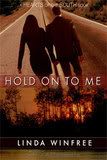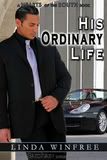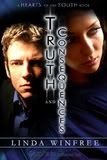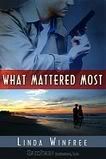Unity of What?!
I've always been intrigued by the creative process of writing. Not just how I string words into sentences and glimpses of scenes into a plot, but how different authors approach the same tasks. I love words, I love writing, I love reading . . . no wonder I became an English teacher, right?
(Sometimes when I get a little too excited over some fantastic stylistic issue while teaching, my students look at me funny . . . they don't get my literary bubble, either, I don't think.)
Many of the writers I interact with love workshops and craft books. Me? Not so much. It's not that I don't think they have merit or that I already know all I need to know about writing -- far from it. I have a few books on writing that are ragged from my returning to them over and over, and stashed away on my hard drive are notes from a couple of workshops I found invaluable. But for the last couple of years, while I've been learning a new, difficult prep for school (you know, my paying job, the one my agent told me not to quit just yet), there simply hasn't been enough time for workshops or poring over craft books. Some days, I was doing good to find time at the end of the day to write.
I know what you're thinking -- we make time for what's important. If I'd really wanted those workshops or to read tons of craft books, I'd have made time. To a point, you're correct. However, what I've been able to do while mired in American Literature hell is study more closely the authors, classic and contemporary, that make up the diversity and genius of American writing. Along the way, I've picked up some interesting tidbits on those writings as well as some new-to-me techniques.
Here's two facts about Edgar Allan Poe: he's considerd the Founder of the Short Story and the Originator of the Detective Story. Perfect fodder for a romantic suspense author, right?
But I think the most important thing I've taken away from Poe's body of work is a little idea called "Unity of Effect." The idea is simple -- everything in a piece of writing works to create a single effect (we might call this mood).
Everything.
Every plot point.
Every detail.
Every word choice.
Now, if you focus on this while writing, you risk driving yourself crazy. Or into a nice case of stress-induced writer's block.
It is, however, a great technique to put into place at two key points of your writing process: plotting and editing/revising. Poe was a plotter in a world of pansters. In 1846, he wrote "The Philosophy of Composition," in which he recommended that writers plot out a piece of writing completely before drafting. This was not the accepted method of writing during that period. However, if you read Poe's work, you can see the plotting at work -- despite the dense prose, the pieces are tight, with each plot element moving us toward an inevitable end. This is a technique I'm still working to master -- that everything ties together (E would call this plot braiding), with no nonfunctional tangents.
In terms of editing/revising, utilizing the unity of effect concept can aid in developing not only your individual voice and style, but the overall tone and mood of your novel. I would suggest undertaking this after any big picture revisions have been completed -- this is line by line, paragraph by paragraph, scene by scene tweaking. Pare out the non-essential details. Choose the words that convey the mood of the scene, the tone of the book. Decide what effect you want on the reader . . . and go for it!
(Sometimes when I get a little too excited over some fantastic stylistic issue while teaching, my students look at me funny . . . they don't get my literary bubble, either, I don't think.)
Many of the writers I interact with love workshops and craft books. Me? Not so much. It's not that I don't think they have merit or that I already know all I need to know about writing -- far from it. I have a few books on writing that are ragged from my returning to them over and over, and stashed away on my hard drive are notes from a couple of workshops I found invaluable. But for the last couple of years, while I've been learning a new, difficult prep for school (you know, my paying job, the one my agent told me not to quit just yet), there simply hasn't been enough time for workshops or poring over craft books. Some days, I was doing good to find time at the end of the day to write.
I know what you're thinking -- we make time for what's important. If I'd really wanted those workshops or to read tons of craft books, I'd have made time. To a point, you're correct. However, what I've been able to do while mired in American Literature hell is study more closely the authors, classic and contemporary, that make up the diversity and genius of American writing. Along the way, I've picked up some interesting tidbits on those writings as well as some new-to-me techniques.
Here's two facts about Edgar Allan Poe: he's considerd the Founder of the Short Story and the Originator of the Detective Story. Perfect fodder for a romantic suspense author, right?
But I think the most important thing I've taken away from Poe's body of work is a little idea called "Unity of Effect." The idea is simple -- everything in a piece of writing works to create a single effect (we might call this mood).
Everything.
Every plot point.
Every detail.
Every word choice.
Now, if you focus on this while writing, you risk driving yourself crazy. Or into a nice case of stress-induced writer's block.
It is, however, a great technique to put into place at two key points of your writing process: plotting and editing/revising. Poe was a plotter in a world of pansters. In 1846, he wrote "The Philosophy of Composition," in which he recommended that writers plot out a piece of writing completely before drafting. This was not the accepted method of writing during that period. However, if you read Poe's work, you can see the plotting at work -- despite the dense prose, the pieces are tight, with each plot element moving us toward an inevitable end. This is a technique I'm still working to master -- that everything ties together (E would call this plot braiding), with no nonfunctional tangents.
In terms of editing/revising, utilizing the unity of effect concept can aid in developing not only your individual voice and style, but the overall tone and mood of your novel. I would suggest undertaking this after any big picture revisions have been completed -- this is line by line, paragraph by paragraph, scene by scene tweaking. Pare out the non-essential details. Choose the words that convey the mood of the scene, the tone of the book. Decide what effect you want on the reader . . . and go for it!







4Comments:
The sentence by sentence, paragraph by paragraph editing is what I am doing right now on my paranormal historical. Searching to make sure I'm using the word with the right feel and meaning. Setting the tone of a scene.
This is my attempt at being a perfectionist (which I'm not). I've come to the conclusion all my "loved it, but" rejection letters are due to my lack of detail - not the story so much as the technique.
So, I'm going to go out on a limb and act really dense (because I really am) and ask...is unity of effect then like theme?
You are not dense, LOL. It's not the same thing, although the two could be related easily. Theme is the universal statement in your work -- this is your author's message on a subject. A work can have more than one theme. For example, when I taught the Crucible and had my kids divide into groups, each group came up with a separate theme for the play on a list of common subjects. So one theme might be "Fear brings out the worst and the best in individuals."
Unity of effect deals more with mood/tone and refers to the selection of details and diction to produce a certain effect.
Although I haven't read any of her work, I imagine Lydia Joyce's historicals employ this method, because of what she's said on her blog about her writing style and what her reveiwers have said. Stephen King's works also seem to lend themselves to the unity of effect theory -- his books have a definite mood and it's easy to see how his selection of detail and words establish that particular feeling. It's really apparent in his short story "Last Rung on the Ladder" -- it has a very melancholy mood to it, a sad reminiscing, and each image he chooses, his use of repetition, the particular words he employs build that mood until it culminates in the story's breath-stealing climax.
I'm still trying to master this. I think I pulled it off, kinda/sorta, in HOTM and AFF, but my other work needs polishing before I can really apply the theory.
Another thing about Poe -- I think the most important "unity" was the unification of aesthetics and philosophy/psychology. For Poe, the primary human motivation (for some) was what he called "Perversity": the unfathomable longing of the soul to vex itself. If that's at our core, it seems like the plots would have to be self-destructive, even when they seem redemptive (see for example the narrators' confessions in "The Black Cat" or "The Imp of the Perverse" or "The Cask of Amontillado" -- all can be read as self-condemning?).
Good blog. Carry on!
Post a Comment
<< Home